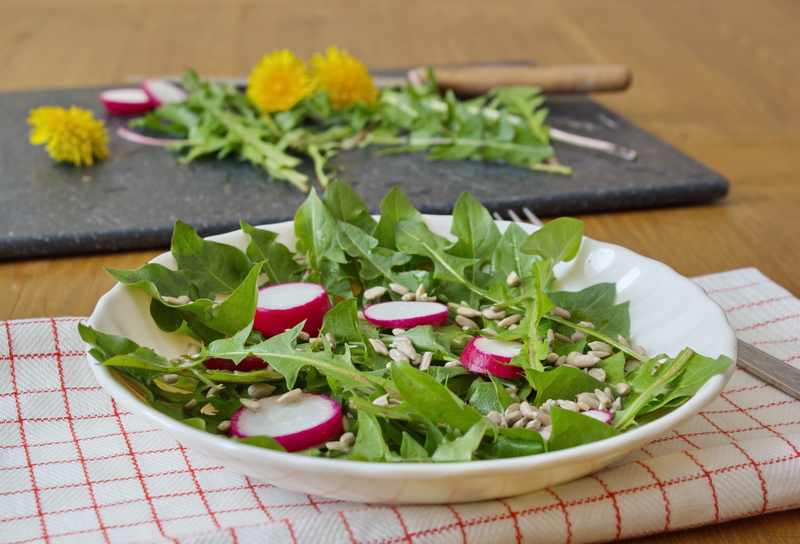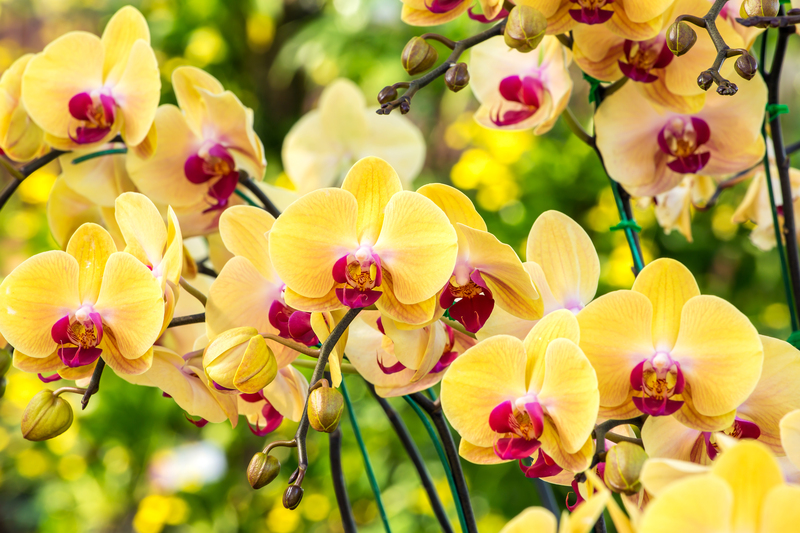Start Strong: 9 Key Tips for Beginner Gardeners
Posted on 23/05/2025
Start Strong: 9 Key Tips for Beginner Gardeners
Embarking on your gardening journey is both exciting and rewarding. If you're a beginner gardener, you might feel overwhelmed by the sheer abundance of plants, tools, and techniques available. But don't worry! With the right approach and foundational knowledge, any gardening novice can create a flourishing, sustainable garden. In this comprehensive guide, we'll share 9 essential tips for beginner gardeners to help you start strong and grow a green thumb in no time.
1. Understand Your Local Climate and Soil
Before you get your hands dirty, it's crucial to learn about your local climate and soil conditions. Successful gardens are based on plants that thrive in the environment where they're grown.
- Climate Zone: Find out which USDA Plant Hardiness Zone you're in. This determines which plants are likely to survive year-round in your location.
- Soil Type: Test your soil's pH and composition - whether it's sandy, clay, silt, or loam. Different plants prefer different soil types, so this knowledge is fundamental for planning.
- Sunlight: Assess how much sunlight your intended space receives each day (full sun, partial shade, or full shade) to select appropriate plants.
Pro Tip: Use a simple DIY soil test or send a sample to your local extension office for precise analysis. This small step can make a world of difference for budding beginner gardeners.

2. Start Small and Simple
It's tempting to transform your entire yard into a lush retreat at once, but the best advice for novice gardeners is to start small. Focus on a manageable space or a few containers. This approach lets you:
- Learn basic gardening skills without becoming overwhelmed
- Monitor your plants' health more easily
- Troubleshoot problems quickly
- Build confidence as you see tangible progress
Remember: Even expert gardeners started with a small patch or a handful of pots. Gardening is a journey, not a race!
3. Choose Easy-to-Grow Plants
For your first garden, choose plants that are well-suited to beginners and your local environment. Some plants are known for being particularly forgiving and hardy. Here are a few suggestions for beginner gardening success:
- Vegetables: Lettuce, radishes, beans, peas, and cherry tomatoes
- Herbs: Basil, parsley, chives, mint (in pots to prevent spreading)
- Flowers: Marigolds, sunflowers, nasturtiums, pansies, zinnias
- Houseplants: Snake plant, pothos, spider plant, jade plant
Research which varieties thrive in your local area and remember to read seed packets or plant tags for vital information on planting depth, spacing, and care.
4. Invest in Basic Gardening Tools
You don't need an arsenal of specialized gadgets to enjoy gardening. However, a few quality basics will make your life much easier as a new gardener:
- Gardening gloves: Protect your hands from thorns and dirt.
- Trowel and hand fork: For digging and loosening soil in small spaces.
- Watering can or hose: Essential for keeping your plants hydrated.
- Pruning shears: For trimming and harvesting.
- Spade or shovel: Useful if you're starting an in-ground bed.
Opt for sturdy, ergonomically designed tools. Quality tools can last a lifetime, making gardening more enjoyable and efficient for years to come.
5. Learn Proper Watering Techniques
Watering is one of the most crucial aspects of gardening, especially for beginner growers. Both over-watering and under-watering can harm your plants. Here's how to get it right:
- Check soil moisture regularly. Stick your finger about an inch into the soil; water only if it feels dry.
- Water deeply, but less often. This encourages deep root growth, resulting in healthier plants.
- Water early in the morning or late in the afternoon to reduce evaporation loss and fungal diseases.
- Avoid wetting the leaves as much as possible, focusing on the soil and roots.
Quick Tip: Mulch around your plants to help retain soil moisture and reduce weeds - a game-changer for beginners!
6. Feed Your Soil, Not Just Your Plants
Healthy plants start with healthy soil. One of the secrets to gardening success for beginners is caring for the earth beneath your feet. As the saying goes, "Feed the soil and the soil will feed your plants."
- Add compost or well-rotted manure to enrich your soil naturally.
- Rotate crops in vegetable gardens each season to prevent nutrient depletion.
- Consider slow-release organic fertilizers for a steady supply of nutrients.
- Mulch with straw, leaves, or wood chips to improve soil health over time.
Compost can be made right at home from kitchen scraps and yard waste -- an eco-friendly and cost-effective way to build a thriving organic garden.
7. Be Vigilant About Pests and Diseases
Even a small garden can attract pests and diseases. The key for new gardeners is proactive observation:
- Inspect plants regularly. Look for signs of pests (holes in leaves, sticky residue, webbing) or disease (discoloration, wilting).
- Encourage beneficial insects like ladybugs and lacewings that naturally control pests.
- Practice good garden hygiene: Remove dead plants and fallen leaves to discourage disease.
- Use eco-friendly pest solutions: Start with hand-picking pests or using natural remedies such as neem oil or mild soap sprays.
Tip: Avoid chemical pesticides unless absolutely necessary - they can harm pollinators and upset your garden's delicate balance.
8. Record Your Gardening Journey
A gardening journal can quickly become one of your most valuable tools. By tracking your activities, you'll learn from both successes and setbacks.
What to Record in Your Garden Journal:
- Dates and notes of planting, harvesting, and fertilizing
- Weather conditions and first/last frost dates
- Varieties grown and performance details
- Pest or disease occurrences and remedies used
Reviewing your journal at the end of each growing season will help you plan more efficiently and avoid repeating mistakes in the future - a tried-and-true habit of experienced gardeners.
9. Be Patient and Keep Learning
Last but not least, gardening is a lifelong learning experience. Even the most seasoned pros make mistakes and face unexpected challenges each season. The most important characteristic for rookie gardeners is patience.
- Don't be discouraged by failures; every setback is a lesson.
- Read books, follow gardening blogs, join community garden clubs, and don't hesitate to ask questions.
- Observe and enjoy the process - the journey is just as rewarding as the harvest.
Remember, the best gardens grow with time, care, and curiosity.
Bonus: Quick Checklist for Beginner Gardeners
- Assess your site (light, soil, climate)
- Start with easy plants and small areas
- Invest in basic garden tools
- Water wisely and mulch
- Focus on soil health
- Monitor for pests and diseases
- Document your experiences
- Keep learning and stay patient

Frequently Asked Questions for Beginner Gardeners
What is the easiest vegetable for beginners to grow?
Radishes, lettuce, and beans are some of the easiest vegetables for beginner gardeners. They germinate quickly, require little maintenance, and produce reliable yields.
When should I start planting my garden?
The best time depends on your local climate. Generally, wait until after the last expected frost in your region. For some plants and climates, you can start seeds indoors several weeks before transplanting outside.
How often should I water my garden?
Most garden plants prefer the soil to be kept consistently moist but not soggy. Check soil moisture by feel, and water deeply when the top inch is dry. Frequency will vary by season and rainfall.
How can I tell if my plants are getting enough sunlight?
Most vegetables need at least 6 hours of direct sunlight per day. If your plants are thin, leggy, or have few blooms, they may need more sun or a new location.
Conclusion: Grow Your Gardening Confidence!
By following these 9 key tips for beginner gardeners, you'll lay the groundwork for a productive, joy-filled, and sustainable garden. From understanding your soil and climate to choosing the right plants and learning the essentials of watering and garden care, you're ready to start strong on your gardening adventure. Whether you're planning to grow vibrant flowers, bountiful vegetables, or a peaceful green haven, remember: Every gardener was once a beginner. Enjoy the journey, celebrate every sprout, and don't be afraid to get your hands in the dirt!
Happy gardening!
Latest Posts
Eco-Gardening: Planting the Seeds for Climate Protection
Unlocking the mysteries behind vibrant orchid petals
Designing a Garden that Oaks Wind with Elegance

